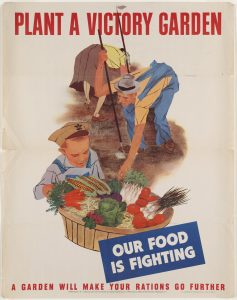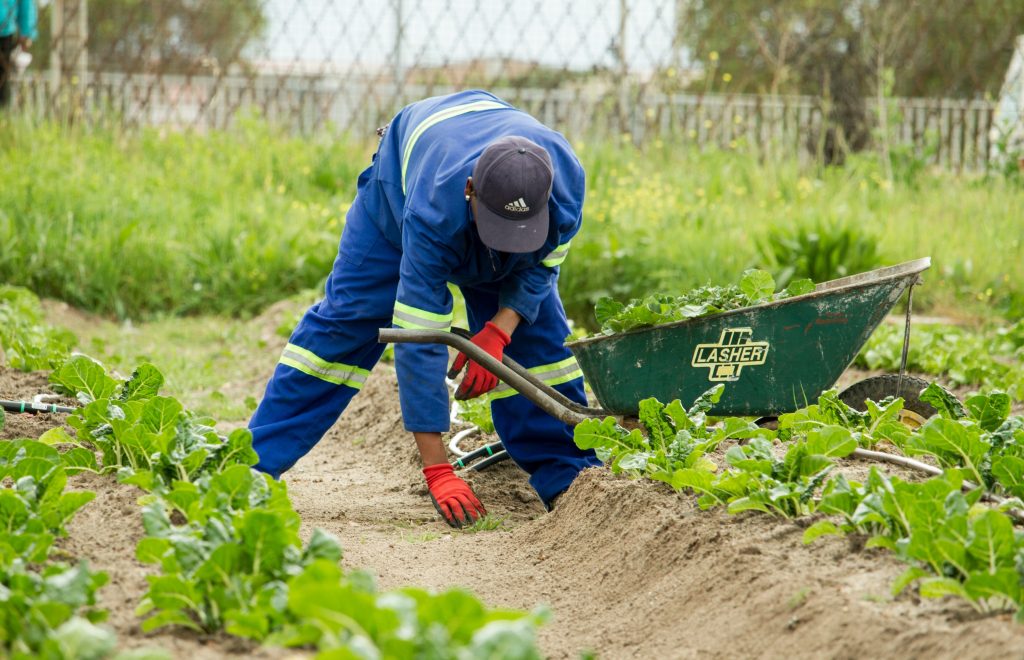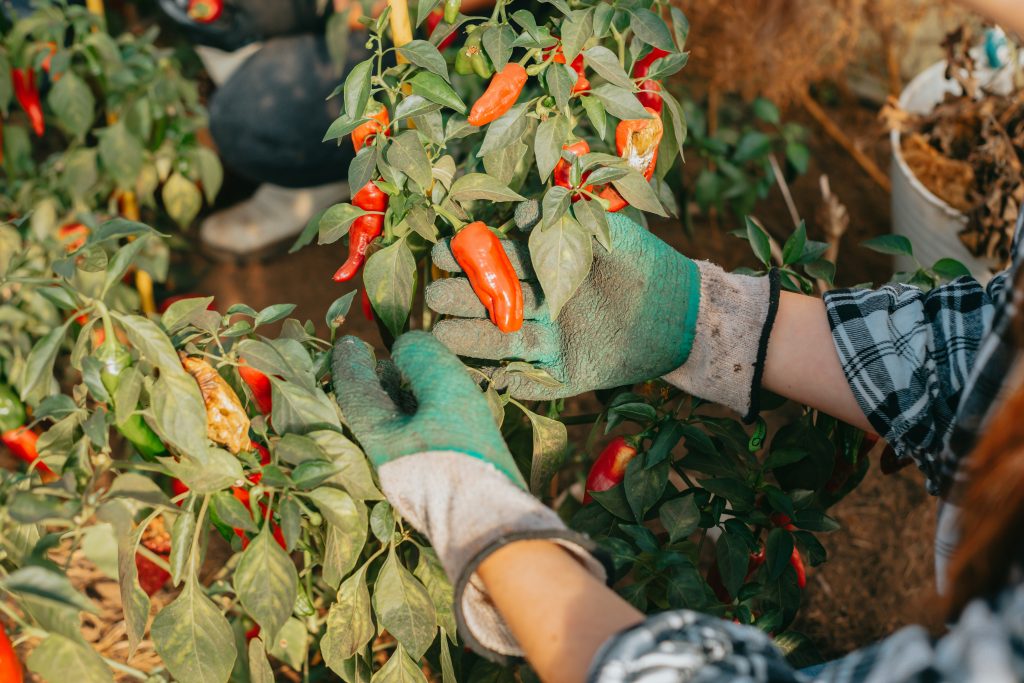Back to the Farm
Is there anything that tastes better than a sun-warmed tomato? Or a salad full of greens so fresh you can taste the vitamins? Sure, you can get produce in a supermarket, but local, farm fresh produce just tastes better. For those of us who live in the city, access to that kind of season, local produce has been a problem until recently.

Urban agriculture is big. From urban farm tours to local farmers markets that proudly support local farmers, urban farms became very trendy in the last few years. And Fort Worth is home to quite a few urban farms.
 It is only within the past century that the United States has moved away from the soil, as it were. During the world wars of the last century, Americans living in cities were encouraged to plant “victory gardens” to grow food, boost morale, and reduce usage of fuel needed for the war front. Woodrow Wilson grazed sheep on the south lawn of the White House in World War I, while Eleanor Roosevelt planted a victory garden at the White House during World War II. The rise of the suburbs and our growing reliance on supermarkets post-war saw the demise of urban farming in the United States. Until…
It is only within the past century that the United States has moved away from the soil, as it were. During the world wars of the last century, Americans living in cities were encouraged to plant “victory gardens” to grow food, boost morale, and reduce usage of fuel needed for the war front. Woodrow Wilson grazed sheep on the south lawn of the White House in World War I, while Eleanor Roosevelt planted a victory garden at the White House during World War II. The rise of the suburbs and our growing reliance on supermarkets post-war saw the demise of urban farming in the United States. Until…
The farm-to-table ethos adopted by restaurants and foodies in the early 2000s drove a renewed interest in urban agriculture. Both of Fort Worth’s farmers markets, Cowtown Farmers Market and Clearfork Farmers Market, include local urban farms among their vendors, offering a venue for foodies to gather locally produced, seasonal foods. But urban farms also provide a way for residents of food deserts (an area of a city where the residents have limited access to affordable and nutritious food) to get healthy food that they can afford in their neighborhood. In Tarrant County, 18% of the population is food insecure. Urban farms can help bridge the gap between government programs and food banks.
There is no hard-and-fast definition for what urban agriculture or urban farming is. The United States Department of Agriculture’s website states that urban agriculture “allows for the development of a variety of environmental, economic, and social benefits to the surrounding communities.” In addition, “… urban farming can reduce transportation costs, help reduce runoff associated with heavy rainfall, and lead to better air quality.” But what is an urban farm?
The USDA’s website states that definitions differ from location to location. The City of Fort Worth currently recognizes three types of urban agriculture:
- Community gardens – a shared garden space for crops that is open to the members of a neighborhood,
- Urban farms – private or public, for- or non-profit agricultural organizations for the planting and harvesting of crops, raising fowl, and beekeeping, and
- Aquaponics – the combination of aquaculture (farming fish and other aquatic species) and hydroponics (growing plants in water) to raise fish and crops together.
There are a growing number of urban farms in the Fort Worth area. While they vary in size and scope, all are committed to producing food that is nutritious and affordable and to support their community.

Tabor Farms, Fort Worth
Southeast Fort Worth is a food desert. Elvis Bowman, the senior pastor of Greater Mt. Tabor Christian Center, wanted to bring the people of his church and the area surrounding it a source of healthy, local food options while teaching local youth to care for the earth. He decided to use three of the 40 acres owned by the church to create a community farm he called Tabor Farms.
Pastor Bowman uses the farm to teach children where food comes from, how it’s grown, and how to incorporate the farm’s products into a healthy diet. When children understand that food doesn’t come from the supermarket, convenience store, or fast-food restaurant, they appreciate it more. Tabor Farm also helps with job insecurity in the area by employing residents of the community. This gives them a stable income while teaching valuable skills. The farm wants to show the impact that the local faith community can make in our city. There are plans to expand the farm in order to serve the entire county.
Mushroom St. Urban Farm, Arlington
Let’s face it: we all went a little crazy during the Covid pandemic. Some of us took up knitting or baked sourdough bread. Warren Gwartney started growing mushrooms. A website developer, Gwartney decided to try fungiculture in a small tent in his guest room. He started giving his mushrooms away to neighbors and friends who encouraged him to get out from behind the computer screen and become a mushroom farmer.
Gwartney, now known as “Mushroom Daddy,” converted a warehouse into a mushroom farm, complete with a lab, incubation room, and climate-controlled “fruiting chambers.” Mushroom St. now produces gourmet mushrooms for restaurants and foodies all over the Dallas-Fort Worth Metroplex. It offers farm tours and is committed to promoting sustainable, local food production. Their website provides a helpful blog called The Mushroom Chronicles, which details the health benefits of various mushroom varieties and gives tips on incorporating these delicious fungi into your meals.
FunkyTown Food Project at Conundrum Farms, Fort Worth
The people of FunkyTown Food Project believe that every person has a right to food. Period. Whether you grow or buy your food, food is a universal right. The farm near Crowley grows a variety of fruits and vegetables using sustainable, organic growing practices. You can purchase their products at the Cowtown Farmers Markets and at pop-ups around town, but FunkyTown Food Project donates about a quarter of their harvest each week to agencies like the Tarrant Area Food Bank and Funky Town Fridge in order to combat food insecurity in our city.
A large part of FunkyTown’s mission is to use the farm to cultivate leadership skills in area high schoolers. Their Seed Crew is a six-week, paid internship program that has teenagers growing and distributing thousands of pounds of produce. The kids learn about sustainable agriculture, distribution methods, social justice, and food access. Change starts at home, and FunkyTown Food Project is devoted to educating the future leaders of our city, our state, and our nation on the importance of food.

River Valley Farms, Aledo
Hydroponics is a method of growing crops without soil. While hydroponic agriculture uses water-based nutrient solutions, hydroponic farmers actually use much less water than traditional growing methods. Additionally, hydroponic farmers can grow year-round instead of waiting for seasonal planting and harvesting. If you crave a cucumber or a caprese salad in February, look for hydroponic produce.
River Valley Farms in Aledo uses sustainable, pesticide-free hydroponic garden practices to grow leafy greens, vegetables, microgreens, herbs, and edible greens. While many urban farms are new endeavors, River Valley Farms can trace its roots (see what I did there?) back to the first commercial peach orchard in Parker County. Their produce is grown in a 50,000-square-foot greenhouse in Aledo, and you can find their produce at the Clearfork Farmers Market and the Cowtown Farmers Market, as well as through their website so that you can enjoy fresh vegetables all year round.
Mind Your Garden Urban Farm, Fort Worth
The Glencrest neighborhood in southeast Fort Worth is located in a food desert. The only real options for buying food in the neighborhood are convenience stores and fast-food restaurants. Steven and Ursula Nuñez want to change that.
Steven, a veteran, attended an agricultural training workshop called Armed to Farm in 2015, and it was a life-altering experience. The workshop introduced him to the therapeutic aspect of farming and taught him about urban farming and how urban farmers can provide local, healthy food for their communities. He and Ursala bought land in the Glencrest neighborhood and are teaching themselves to farm different crops using various growing techniques. They also offer farm tours and do cooking demonstrations around town.
Sapling Farms, Sanger
Located in Sanger, Sapling Farms is the epitome of urban farming. Owner Selvi started it in her backyard! However, she’s been farming since she was a child in India. She learned from her father how a seed grows into a plant, and she brought her love of growing things when she moved across the world to the United States. Learning to grow produce in Texas was an adventure that she undertook to provide her family with nutritious produce, but soon, her backyard garden was producing more vegetables than her family, friends, and neighbors could use.
Sapling Farms was founded in 2017 and produces a wide variety of vegetables year-round using organic farming principles. They grow many of the Indian greens and gourds that Selvi loves because the Dallas-Fort Worth Metroplex has one of the highest populations of Indian Americans in the United States. You can find their products at area farmers markets and through their CSA. Any surplus is donated to area food banks to help end food insecurity in our area.
Opal’s Farm, Fort Worth
Not only did Opal Lee spearhead the movement to make Juneteenth a national holiday (for which she was nominated for a Nobel Peace Prize), but she was also the inspiration for an urban farm called Opal’s Farm. The granddaughter of farmers, Lee wants Opal’s Farm to become a beacon of change in our city.
Situated on fertile bottomland alongside the Trinity River, Opal’s Farm grows tomatoes, cantaloupes, potatoes, peppers, and other produce using 100% organic farming methods. Some of their produce is sold at the Cowtown Farmers Market (with the profits going back to the farm’s operational budget); the rest goes to local food banks. But Lee also envisioned the farm creating jobs by providing job training. To that end, the farm has partnered with Tarleton State University to create a program that provides agricultural training to individuals who have served time in prison, helping them get a certificate or a degree. The program was still in the planning stages at press time, but we are confident if anyone can make it happen, Opal Lee can.


 Sign in
Sign in

